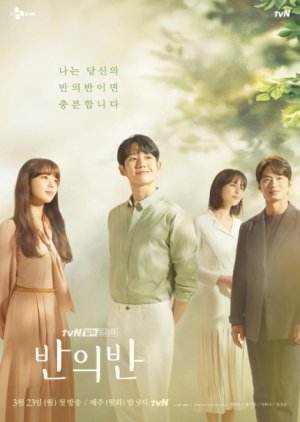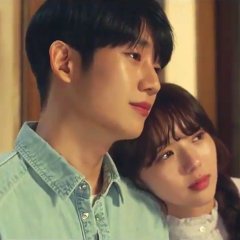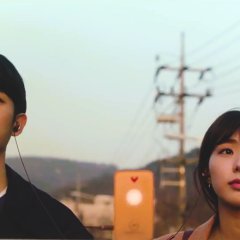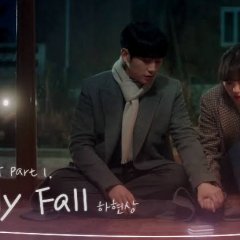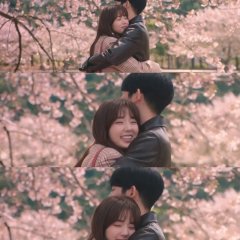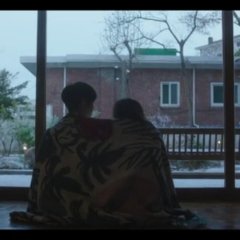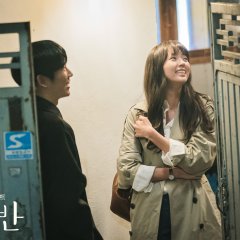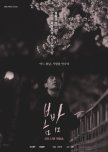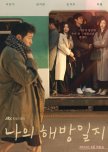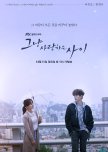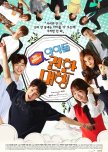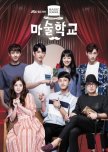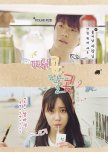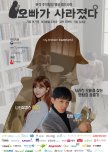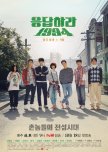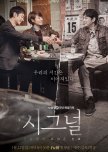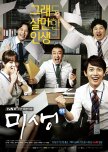 Park Ju Hyun in Talks to Lead a new K-drama About a Newspaper Industry
Park Ju Hyun in Talks to Lead a new K-drama About a Newspaper Industry - Română
- 한국어
- Arabic
- Русский
- Titlu Nativ: 반의 반
- De asemenea cunoscut ca și: One Fourth , Banui Ban , Half of Half , Half of a Half , Baneui ban
- Regizor: Lee Sang Yeob
- Scenarist: Lee Sook Yun
- Genuri: Romantism, Viaţă, Dramă, Melodramă
Cast și credite
- Jung Hae In Rol Principal
- Chae Soo BinHan Seo WooRol Principal
- Lee Ha Na Rol Principal
- Kim Sung GyuKang In WookRol Principal
- Park Ju HyunKim Ji Soo [Ha Won's first love]Rolul de Sprijin
- Lee Sang HeeJun Eun Joo [Homestay Owner]Rolul de Sprijin
Recenzie

-I solely picked up this drama because of the leads, but i wasn't disappointed. At all. Certainly not by the acting, as everyone, but specially Jung Hae In and Chae Soo Bin did a wonderful portrayal of their characters.
-The best way I can describe this drama is like taking long sips of warm tea of a rainy day. That's how it felt like to me. It has this warm feel to it, if that makes sense. It wasn't just another romance drama, it was something different.
-I simply adored the chemistry between the main leads. I loved their slow burn relationship. The way they grew to love and respect each other. Another thing, that I just can't thank the writer enough was the fact that they had tons of scene together.
I don't know if this is a good thing or a bad thing, but this one didn't really have a lot of supporting characters. Don't get me wrong, it had enough, but definitely not as much as compared to other Kdramas. Maybe some people would find that not that of a good thing, but since I was invested in the main leads relationship, I didn't really mind. I loved it, if anything.
-After the first few episodes, it almost felt like nothing was "actually" happening but each episode was so comforting and relaxing to watch. I always looked forward to the next episodes! Which takes me to my next point.
-This is not exactly a binge-able drama. As much as I loved it, even I admit had I watched it in one go, I probably wouldn't have been this taken with it. This drama is meant to be enjoyed slowly. Although that's not to say that people won't enjoy marathoning it. After all, everyone has different tastes.
-I'm trying very hard to be subjective here, so I won't say that it's a mind blowing drama. In fact, if any one were to ask it WHY did I love it this much, I probably wouldn't be able to point it out. Was it because I love Jung Hae In (& Chae Soo Bin, but not to that extent), was it because of the whole unrequited love plot (I'm a sucker for those), was it because of the pacing or was it just a combination of everything? Like I said, I'm not sure. But I do know that loved this drama very, very much. And that doesn't happen to me now as much.
-I am not going to comment much on the technological aspect of the drama because I am not that familiar with it. But there were a few things that would seem a bit absurd at times.
-I didn't quite get the point of Min Jung's character. I mean usually a supporting character is there to, you know, support the story. But it felt like she was just there. Also, I didn't enjoy the whole Soon Ho- In Wool relationship. I didn't see it, I didn't feel it, so there you go. But for both of these things, I am guessing it's only me as I haven't seen anyone else making a comment on these.
I feel like every drama has its strong and weak points. So had this one. I have tried to summarize them the best i could. Regard less of any thing, i loved this drama, and i was really disappointed that it got cut short.
I really hope you give this one a chance! Happy Watching!!
Considerați utilă această recenzie?
AudienceofOne
103 oamenii au considerat această recenzie utilă
Unfortunately, like an emotion, it has to be felt to be understood. Just like words frequently falter at expressing our feelings so they also falter at describing this beautiful drama.
With dismal ratings in Korea, the show even ended up being cut to 12 episodes. But even though the loss of those four is a tragedy and the show was forced to speed up its storytelling to compensate, it is still an almost-perfect study of grief, loss and how we grapple with the hole people leave in the world when they pass.
Jung Hae-in always gives lovely understated performances and his portrayal of the inventor Moon Ha-won is no exception. Ha-won has loved and lost but always from afar as he observes life but fails to live it. He is an inventor in the world of artificial intelligence working on recreating the personalities of lost loved ones for therapeutic purposes. He is driven by the need to understand both the sudden death of his mother when he was 18 and the loss of his childhood friend, Kim Ji-soo (Park Joo-hyun), whose husband insisted she break ties with him after their marriage.
While working on the project he acquires a recording studio to lay down voices and meets orphaned sound engineer, Han Seo-woo. Chae Soo-bin is wonderful here as the warm but still grief-stricken Seo-woo. These two embark on a healing relationship of mutuality and reciprocity. This couple's ability to understand and accept the other's losses and to each give and take to an equal extent is heartwarming to watch unfold.
At one point in the drama, Ha-won suggests Banbogi: a meeting between two people who love each other at a midway point between the two. Bangobi encapsulates the reciprocity and mutuality between the two. One does not go to the other, whether physically or emotionally. They always meet in the middle.
Our core couple orbit the black hole that is the loss of Ji-soo. But around them swirl a host of other damaged characters. Ha-won's niece , Moon Soon-ho (Lee Ha Na) who has taken nine years to get over a bad breakup. Jis-oo's controlling and almost-abusive husband, Gang In-wook (Kim Sung-gyu). And the found family of guests living in the boarding house that Seo-woo took shelter in after the death of her family.
While the show examines grief in all its iterations - whether through the death of a loved one, a relationship, or even the person you used to be - it's also about the way in which we grapple with the hole a person leaves in the world when they're gone. How we want just a piece of them to hold onto and how we struggle with the realisation that we will never know what they were thinking because we can never speak to them again.
The Ji-soo AI that Ha-won creates becomes that piece. But it's through Ha-won and In-wook's reactions to that piece that we see most clearly what this drama is trying to say. People are not pieces or object to possess, control or dominate. We will never own them, just as we will never know truly what they think and feel. But that isn't necessary to gain comfort and strength from them and to give that comfort and strength in return.
Grief is overcome by connection and community but most of all through true mutuality. And that's the most heartwarming message of all.
I can only hope that now it's over, people can finally realise what a gem this show was. And maybe, just maybe, next time Korea produces something as finely-written and beautiful as this, people will watch it.
Considerați utilă această recenzie?

